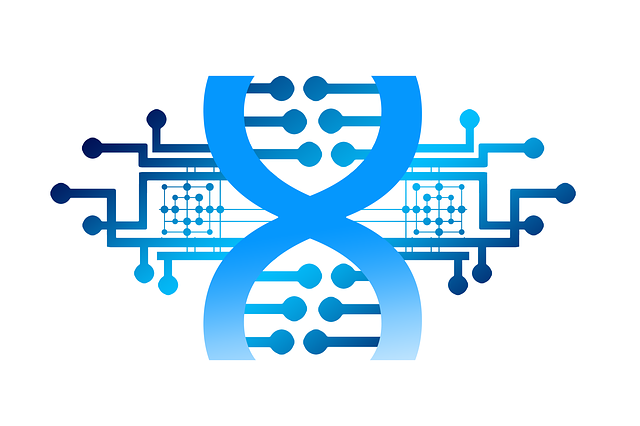7 Feb. 2022. Two biotechnology companies created a synthetic non-infectious target model to represent SARS-CoV-2 viral variants for vaccine and therapy developers. A team from Twist Bioscience Corp. in San Francisco and Eleven Therapeutics in Cambridge, U.K. describes its synthetic RNA model called a replicon, in a paper posted Saturday on bioRxiv, a pre-publication repository for biomedical journal articles not yet peer-reviewed.
A replicon is an engineered virus with infection-causing components removed. The remaining parts of the virus provide enough of the viral genome as a target for researchers to develop new vaccines or therapies. Replicons are already in use to mimic Zika, dengue, and SARS-CoV-1 viruses. In this project, researchers are seeking a replicon target for the SARS-CoV-2 virus responsible for Covid-19 with the ability to replicate, but still not infect cells. In addition, the design technology needs to produce replicons that accurately represent different SARS-CoV-2 variants already circulating, as well as those yet to emerge.
Twist Biosciences develops synthetic genetic materials on a silicon platform, patterned after semiconductors, instead of traditional plastic plates and receptacles. This process, says the company, overcomes conventional limitations and inefficiencies to design and construct genes, and from these synthetic genes, produce libraries of genetic variations. As reported by Science & Enterprise in July 2021, Twist Bio used its technology to design genetic reference materials for tests that detect the then-quickly spreading SARS-CoV-2 delta variant.
Eleven Therapeutics applies computational techniques, including artificial intelligence, to biochemistry. The company says its technology uses massive parallel synthesis to produce programmable small synthetic RNA molecules that can silence or interfere with disease-causing targets, with a current pipeline focusing on respiratory diseases.
Introduce and test small genomic alterations
In their paper, researchers from both companies led by Eleven Therapeutics CEO Yaniv Erlich, describe a process for creating replicons with certain needed properties, based on published genetic sequences. As a result, says the team, this process allows vaccine and therapy developers to use synthetic replicons as design targets without transferring live viral material. In addition to reducing safety concerns, labs do not need to prepare material transfer agreements that can add significant bureaucratic delays at a time when speed is essential.
The Twist/Eleven process first screens for all available genetic sequencing data to create a consensus sequence for a particular viral strain or variant. The system then uses algorithms to introduce and test a series of small simulated alterations to the sequence to find an optimal sequence that removes all ability of the virus to infect cells, but retains other viral properties.
To prove the concept, the study team designed a replicon simulating the SARS-CoV-2 beta variant, previously named B.1.351, and first discovered in South Africa in May 2020. Tests in secure biosafety labs, say the authors, show the replicon is non-infectious. Further tests with the authorized Covid-19 antiviral drug molnupiravir and Eleven’s RNA-interference candidates show the replicon responds to treatments like the live virus.
In a Twist Biosciences statement, Erlich says the replicon technology can be readily and quickly applied to other SARS-CoV-2 variants. “We developed this in only three weeks,” says Erlich, “showing that both the active ingredient in the commercial antiviral drug molnupiravir and our proprietary RNAi treatment, which had already been known to effectively treat other variants of the SARS-CoV-2 in live virus samples, inhibited the replicon effectively, confirming therapeutic development applicability for the replicon.”
“Replicons offer a safe alternative to study viruses and represent another potentially important tool in fighting SARS-CoV-2,” notes Emily Leproust, CEO of Twist Biosciences. Leproust adds, “Using the framework we developed, researchers can quickly establish new assays to develop specific therapeutics and study variant characteristics.”
More from Science & Enterprise:
- Exosomes Shown to Block Broad Covid-19 Variant Range
- Trial Shows Gut Probiotic Reduces Covid-19 Disease
- Biotech, AI Company Partner on Covid-19 Alert System
- Foundation Backing Expanded Pandemic Surveillance
- CEPI Funds Multi-Variant Covid-19 Vaccine
We designed Science & Enterprise for busy readers including investors, researchers, entrepreneurs, and students. Except for a narrow cookies and privacy strip for first-time visitors, we have no pop-ups blocking the page, nor distracting animated GIF graphics. If you want to subscribe for daily email alerts, you can do that here, or find the link in the upper left-hand corner of the desktop page. The site is free, with no paywall. But, of course, donations are gratefully accepted.
* * *


 RSS - Posts
RSS - Posts
You must be logged in to post a comment.